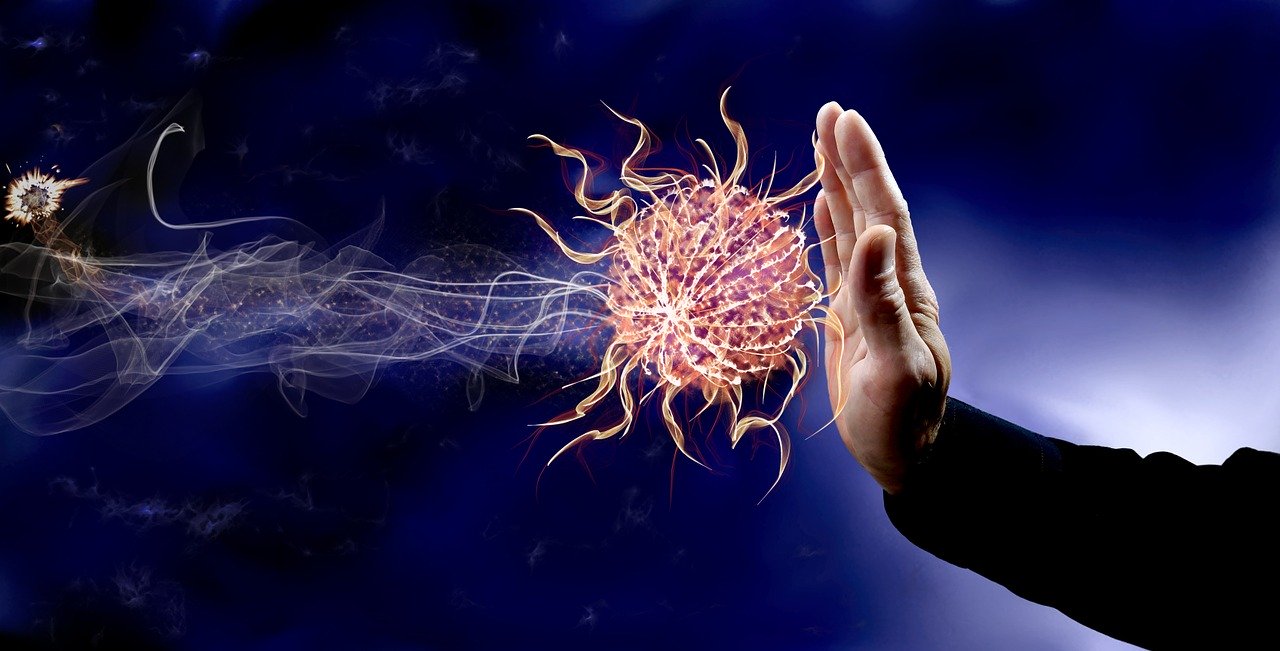White blood cells, like warriors, wage battle daily against pathogens, including the coronavirus, which has caused a global outbreak. If a healthy person with a strong immune system catches the virus, white blood cells will literally gobble up the infected cells.
But what happens when someone has weak immunity? They will have a hard time fighting off the coronavirus, which is also known as COVID-19. They might need help in the form of human growth hormone, an immunity booster.
Without an available vaccine or viral medication for COVID-19, a strong immune system may be the only hope for avoiding infection or for surviving and recovering if you get it. Even with a vaccine, viruses mutate so much that the body’s immune system will always be the best defense. With that in mind, many people are turning to vitamins, herbs and superfoods to increase immunity. However, one potent way to shore up your body’s defense system is HGH.
HGH triggers the development of the human immune system by stimulating a special gland called the thymus, which produces lymphocytes. Lymphocytes, also known as T cells or white blood cells, are the foundation of the body’s immune response and are responsible for how the body adapts to fight bacteria and viruses that enter the body.
What is Coronavirus?
An acute respiratory illness, the newest coronavirus has sparked a pandemic after originating in Wuhan, China and spreading across the globe. It has killed more 920 000 people worldwide so far and has infected more than 50 million people. The viral infection is accompanied by the following symptoms:
- coughing,
- fever
- diminished breathing capacity
- sore throat
- body aches
It can also cause death in vulnerable and fragile people, like the elderly or those with chronic ailments. Although its symptoms might be mistaken for the flu, the coronavirus is much more dangerous because it can be lethal in more than 3 percent of the cases. Also, some people who get infected with the virus may be asymptomatic and thus spread the disease to others without knowing it. Another danger is that those who recover may still suffer long-term lung damage.
How Can HGH Fight the Viruses?
Produced by the pituitary gland, the growth hormone, also called somatotropin, causes four beneficial antiviral actions to fight the coronavirus: It multiplies the number of B cells:
- B cells are white blood cells made in the bone marrow that create antibodies. Antibodies bind to parts of the coronavirus and neutralize it, helping the body stave off the respiratory infection.
- It increases T cells: T cells are another type of white blood cell that produces cytokines, which help the body locate and fight inflammation caused by COVID-19. One way that viruses attack the body is by increasing inflammation as they infect healthy cells, according to the National Institutes of Health. Reducing inflammation is the body’s first immune response, which can limit the virus’s ability to reproduce and spread.
- It synthesizes immunoglobulin: Immunoglobulins, made from plasma, are the actual antibodies that destroy viruses, bacteria and other toxins that enter the body. By synthesizing this substance, the growth hormone makes sure the body has an abundance of antibodies available to fight coronavirus.
- It influences maturity of myeloid progenitor cells: These progenitor cells are the building blocks of red blood cells, platelets, leukocytes, osteoclasts, granulocytes, monocyte-macrophages, dendritic cells and mast cells of the immune system. Viruses, like COVID-19, try to reduce progenitor cells in hopes of sneaking past the immune system undetected. By bringing more myeloid progenitor cells to maturity, the hormone hinders the virus’s strategy, says the journal of Molecular Diversity Preservation International.
When the body is deficient in growth hormone, synthetic versions can come to the rescue. Abundant during childhood, the hormone decreases once the body reaches adulthood, according to the Mayo Clinic. It decreases even more in women who have reached age 60 and for anyone who has suffered a disease.
How Do I Get and Use Human Growth Hormone?
Synthetic versions of the hormone are available in injection solutions or powder form, with injections being the most effective and reliable.
For an injection, you need a prescription from a hormone specialist, who will first test your hormone levels. While the doctor can give the injections, patients can also self-inject in the comfort of their own homes using a pen or a needle. Injections, done under the skin or between muscles, are typically given several times a week or even daily, depending on the level of hormone deficiency. The dosage may range from 1mg to 5 mg, depending on weight, age, health, goal, gender and patient preference. After injection, the hormone circulates in the body for roughly half an hour.
Human GH powders come with a liquid so they can be reconstituted. During subsequent visits to the doctor’s office, your general practitioner can do more blood tests to study the effects of the hormone on your body. Then, the dose may be adjusted. Hormone therapy typically lasts from two weeks to a full year.
Human GH pills do not exist, despite the claims of marketers online. Pills marketed as hormone supplements merely have amino acids and other unregulated ingredients that will allegedly help the body produce more human GH. They are not a reliable way to boost immunity. Also, while some online pharmacies dispense injection solutions, it is illegal to sell true human GH without a prescription and without medical supervision, according to the U.S. Department of Justice. It is best to receive treatment from a legitimate clinic or physician.
Possible Side Effects or Concerns of synthetic GH
The Mayo Clinic and Medical News Today warn that too much human GH can be harmful to the body, causing the following side effects:
- Joint pain
- Muscle pain
- Carpal tunnel syndrome
- Swollen limbs
- Edema
- Development of tumors
- Allergic reactions
- Numbness
- Tingling
In addition to the above, excess amounts of this hormone could exacerbate conditions like diabetes and hypertension. People with cancer and heart disease should avoid synthetic human GH therapy as it could lead to death.
RESOURCES:







